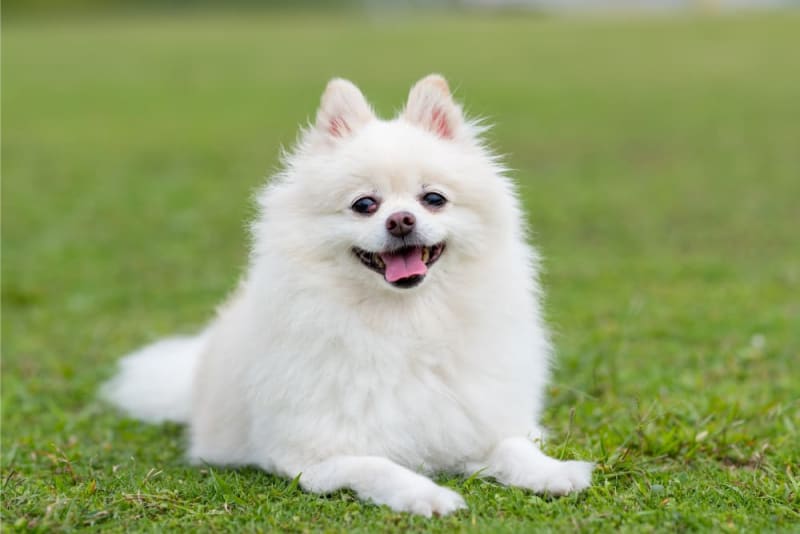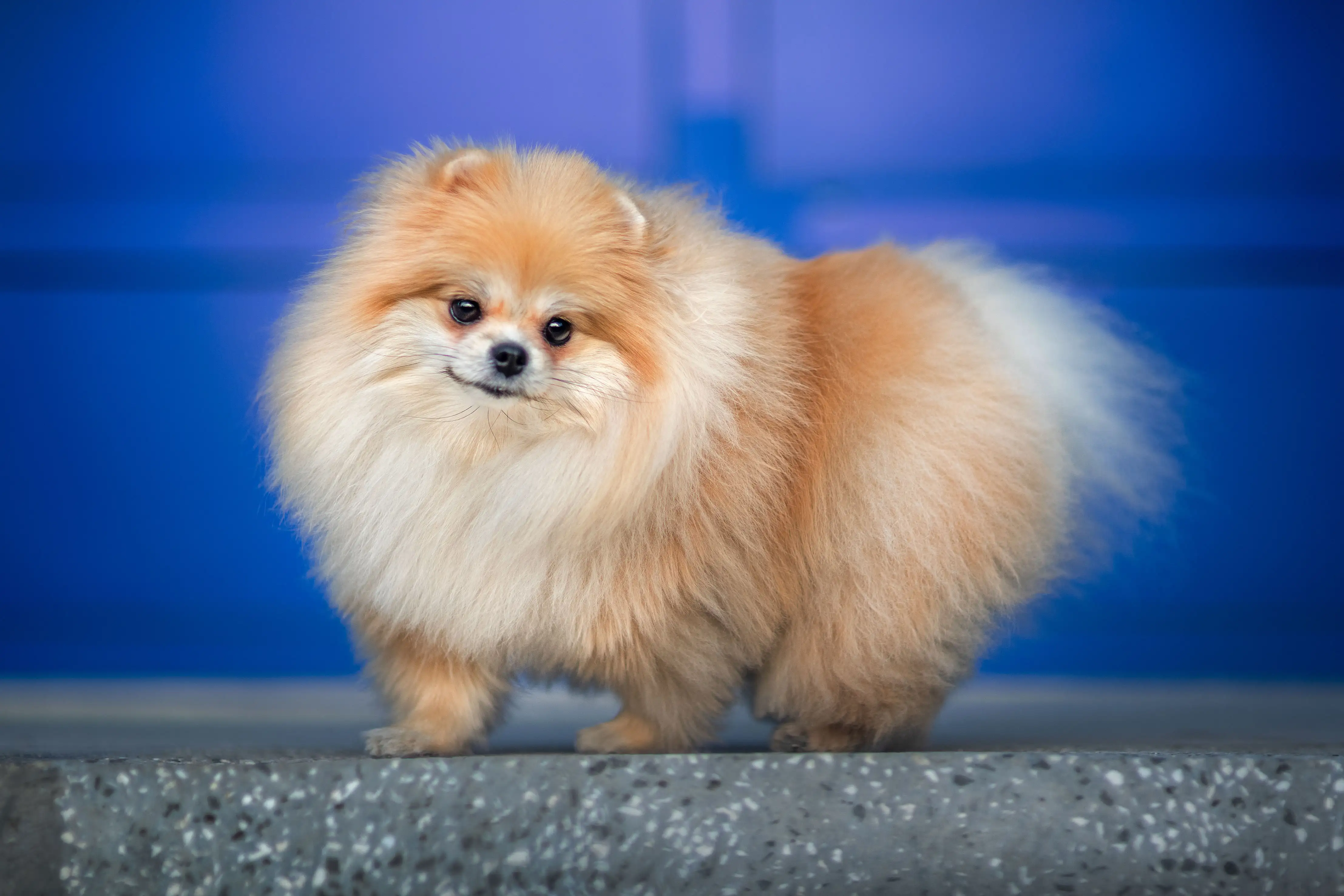Table of Contents
ToggleIntroduction
Small dogs have become increasingly popular in modern times, offering the perfect blend of convenience, charm, and personality. Their compact size makes them ideal for apartment living, city environments, or anyone seeking a companion that doesn’t require vast outdoor space. The allure of a small= dog is evident: they are easy to manage, less intimidating for first-time dog owners, and have a variety of temperaments that can fit many lifestyles. Whether you’re looking for a playful companion or a calm, lap-loving dog, small breeds have something for everyone.
Choosing the right small= dog is an important decision that should be made with careful consideration of several factors. In this comprehensive guide, we’ll dive deep into the world of small dogs, covering everything from the most popular breeds to their care, training, and health needs. Along the way, we’ll examine what makes small dogs unique and why they could be the perfect addition to your life.
Popular Breeds of small:r1tfetqsli4= dog
When it comes to small= dogs, there are countless breeds to choose from, each with its own distinct characteristics. Some breeds are known for their playful and energetic nature, while others are beloved for their calm and affectionate demeanor. Here are a few of the most popular small dog breeds that people love:
- Chihuahua: One of the tiniest dogs in the world, the Chihuahua packs a lot of personality into a small frame. These dogs are known for their loyalty and can be protective of their owners despite their small size.
- French Bulldog: These compact and muscular dogs are not only adorable but also known for being very affectionate and easygoing, making them great companions for families and individuals alike.
- Pomeranian: With their fluffy coats and lively personalities, Pomeranians are a favorite among those who want an energetic, playful dog that is still easy to manage.
- Shih Tzu: Known for their luxurious fur and gentle temperament, Shih Tzus are great for people who want a more relaxed, affectionate pet that enjoys lounging around.
- Dachshund: These “wiener dogs” are easily recognizable due to their long bodies and short legs. Despite their size, Dachshunds are brave, independent, and have an inquisitive nature.
These are just a few of the many options available when choosing a small= dog. Each breed comes with its own unique quirks, making it essential to find one that suits your personality and living situation.
Temperament of Small Dogs
One of the most critical factors when choosing a small dog is understanding their temperament. Small dogs, despite their stature, often have strong, distinct personalities. Some are energetic and need constant stimulation, while others are content lounging around the house.
Generally, small= dogs tend to be:
- Loyal: Small dogs often form strong bonds with their owners. They can become quite attached, following you from room to room, and they may be protective of their home and family.
- Energetic: Many small dogs have a surprising amount of energy. While they may not need the same amount of space as larger dogs, they still benefit from regular exercise and playtime.
- Affectionate: These dogs are typically very loving and enjoy cuddling and being close to their human companions. They thrive on attention and can become anxious if left alone for long periods.
- Alert: Despite their size, many small dogs are excellent watchdogs. They have keen senses and are quick to alert their owners to any strange sounds or intruders.
Understanding your dog’s temperament will help you ensure that their needs are met, which will lead to a happier, healthier pet.

Adaptability to Urban Living
One of the reasons small= dogs are so popular is their adaptability to urban living. These dogs are perfect for city dwellers who may not have the luxury of a large yard. Small dogs can easily adjust to apartment living as long as they receive regular walks and exercise.
Living in an apartment doesn’t mean sacrificing the joy of owning a dog. Many small dogs thrive in smaller spaces, as long as they have opportunities for stimulation. Whether it’s a trip to the park or some interactive play at home, small dogs are perfectly suited for urban environments.
Another advantage of owning a small:r1tfetqsli4= dog is that they are often more manageable in crowded spaces. Whether you’re on public transport, walking down a busy street, or even in an office environment, small dogs tend to be easier to handle in these situations. Their size allows them to fit into pet-friendly apartments, and they don’t require as much outdoor space as larger breeds.
Exercise Needs of Small Dogs
While small dogs don’t require as much physical activity as their larger counterparts, it’s important not to underestimate their exercise needs. A common misconception is that small= dogs can get all the exercise they need indoors. However, many small breeds still need regular outdoor walks and playtime to stay healthy.
Certain breeds, such as Jack Russell Terriers or Miniature Pinschers, are known for their high energy levels and will require more exercise than others. Regular physical activity not only helps with weight management but also provides essential mental stimulation for your small dog. Small dogs that do not receive adequate exercise may develop behavioral issues such as barking, chewing, or anxiety.
Depending on your dog’s breed, they may need anywhere from 30 minutes to an hour of exercise per day. This can be split between a morning walk and an evening play session, ensuring your dog stays healthy and happy.
Health Considerations for Small Dogs
Small= dogs come with their own set of health concerns that are important to be aware of. While small dogs tend to live longer than larger breeds, they are prone to certain medical issues. These include:
- Dental Problems: Due to their small mouths, many small dogs can suffer from dental issues. It’s important to regularly brush their teeth and provide them with dental chews or toys to help maintain their oral health.
- Luxating Patella: This is a common issue in small breeds where the kneecap moves out of place, causing discomfort. Depending on the severity, this condition may require surgery.
- Hypoglycemia: Small dogs, especially toy breeds, are prone to low blood sugar. It’s important to feed them small, frequent meals to avoid any dangerous drops in blood sugar levels.
- Breathing Problems: Breeds with shorter snouts, such as Pugs and Bulldogs, may suffer from brachycephalic airway syndrome, making it difficult for them to breathe, especially in hot or humid conditions.
Regular vet checkups are essential for early detection and treatment of any health issues. Being proactive about your dog’s health will ensure they live a long and happy life.
Grooming Requirements for Small Dogs
Grooming is another important aspect of caring for a small:r1tfetqsli4= dog. Some small breeds, like the Shih Tzu or Pomeranian, require regular grooming to keep their coats in good condition. Long-haired breeds may need daily brushing to prevent tangles and matting, while short-haired breeds may only need occasional grooming.
Bathing frequency depends on your dog’s activity level and coat type. Some small dogs can go weeks without a bath, while others may need more frequent washing, especially if they spend a lot of time outdoors.
Regular grooming also includes nail trimming, ear cleaning, and dental care. Keeping up with these grooming tasks not only keeps your dog looking good but also helps prevent health issues such as infections or dental disease.
Training Your Small Dog
Training is crucial for any dog, and small dogs are no exception. While many people believe that small dogs don’t need as much training as larger breeds, this couldn’t be further from the truth. In fact, some small= dogs can be quite stubborn and may require more patience during training sessions.
Positive reinforcement is the most effective training method for small dogs. These breeds tend to respond well to treats, praise, and affection. Consistency is key, as small dogs can quickly develop bad habits if not properly trained.
Socialization is equally important for small dogs. Early exposure to different environments, people, and other animals will help your dog become well-adjusted and confident. Without proper socialization, small dogs may become anxious or aggressive around strangers or other dogs.
Small Dogs and Families
Small dogs can make excellent companions for families, but it’s important to choose a breed that matches your family’s lifestyle. Some small= dogs are great with children, while others may be more suited for adult-only households.
Breeds like the Cavalier King Charles Spaniel or the Beagle are known for being friendly and gentle with kids, making them great family pets. However, smaller breeds like Chihuahuas or Dachshunds may be less tolerant of rough handling, so they are better suited for families with older children.
It’s also important to teach children how to interact with small dogs properly. Small dogs can be easily injured if handled too roughly, so supervision is key when introducing them to young children.

Travel and Small Dogs
One of the biggest advantages of owning a small= dog is their portability. Small dogs are much easier to travel with than larger breeds, making them great companions for those who enjoy traveling or frequently move around.
Many airlines allow small dogs to fly in-cabin with their owners, provided they fit in an airline-approved carrier. This makes traveling by plane much less stressful for both you and your pet.
When traveling by car, small dogs can be safely secured in a dog seat or crate. This ensures their safety during the trip and prevents them from distracting the driver. Always bring along your dog’s essentials, such as food, water, and their favorite toys, to keep them comfortable during the journey.
Conclusion
small:r1tfetqsli4= dog are a popular choice for many dog owners, thanks to their adaptability, charm, and relatively low maintenance compared to larger breeds. Whether you’re living in a small apartment, looking for a loyal companion, or simply love the idea of a lapdog, small dogs can fit seamlessly into many lifestyles.
By understanding their unique needs and characteristics, you can ensure that your small dog lives a healthy, happy, and fulfilling life. Whether you’re drawn to the spunky Pomeranian or the calm French Bulldog, there’s a small dog out there for everyone.
Read also: drawing:el5lvtvvu6c= wolf A Comprehensive Exploration